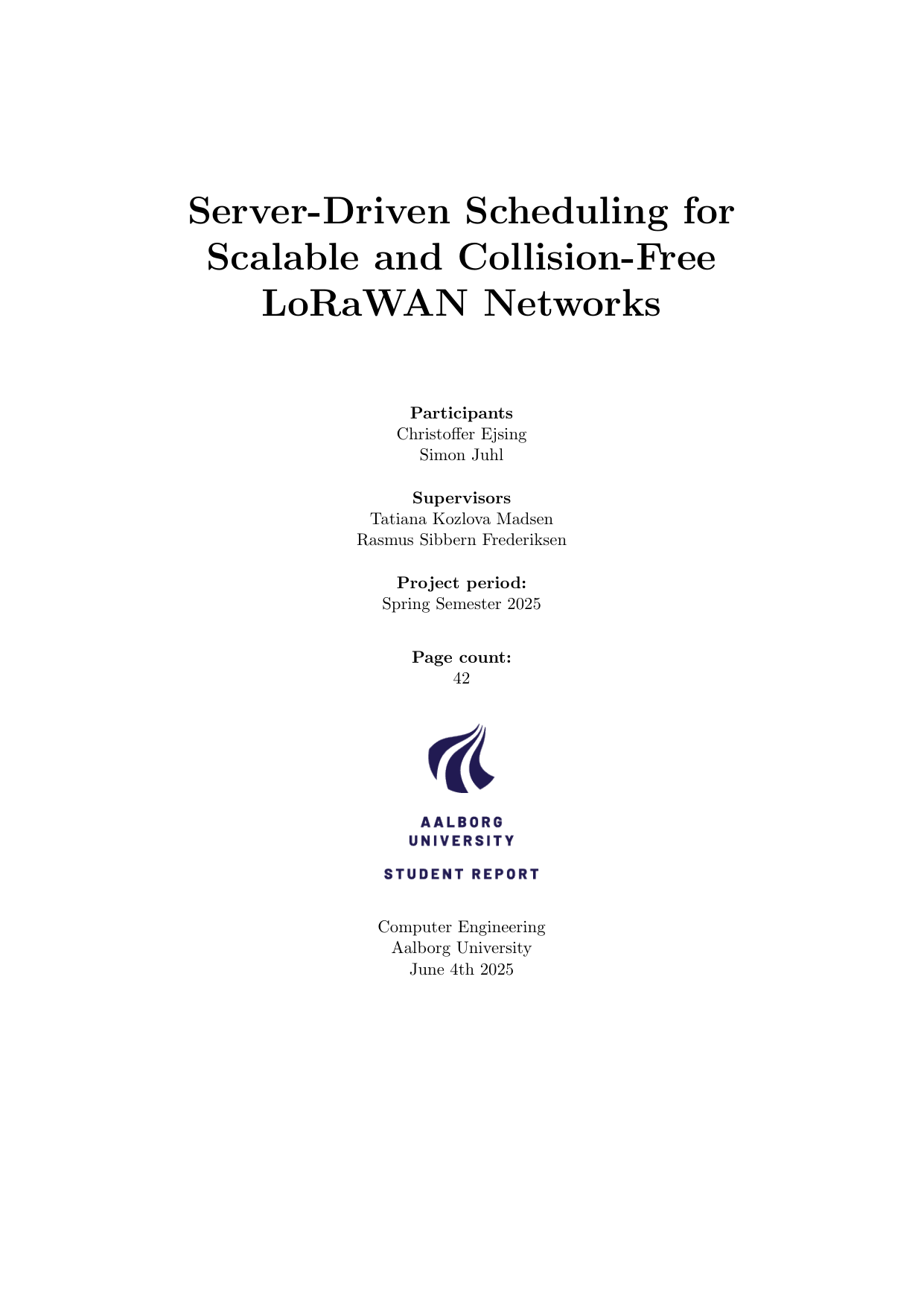
Server-Driven Scheduling for Scalable and Collision-Free LoRaWAN Networks
Authors
Term
4. semester
Education
Publication year
2025
Submitted on
2025-06-04
Pages
42
Abstract
This project explores server-driven time-based scheduling protocols for LoRaWAN networks composed of devices that transmit periodically. The aim is to eliminate collisions and improve channel utilization by assigning time slots to devices according to a collision-free schedule. Three scheduling protocols are introduced, each with different approaches to slot assignment and rescheduling. A custom simulator is used to evaluate their performance under varying network densities and device periodicities. Results show that all three protocols can maintain close to 100% utilization of available time slots under periodic traffic patterns, provided that drift correction and rescheduling are managed correctly. The project focuses on single-channel, single-spreading factor LoRaWAN scenario, but the proposed scheduling structure is designed to be extensible to more complex deployments. The findings highlight the importance of slot structuring, rescheduling strategies, and drift management in achieving reliable operation at scale in Lo- RaWAN systems.
This project explores server-driven time-based scheduling protocols for LoRaWAN networks composed of devices that transmit periodically. The aim is to eliminate collisions and improve channel utilization by assigning time slots to devices according to a collision-free schedule. Three scheduling protocols are introduced, each with different approaches to slot assignment and rescheduling. A custom simulator is used to evaluate their performance under varying network densities and device periodicities. Results show that all three protocols can maintain close to 100% utilization of available time slots under periodic traffic patterns, provided that drift correction and rescheduling are managed correctly. The project focuses on single-channel, single-spreading factor LoRaWAN scenario, but the proposed scheduling structure is designed to be extensible to more complex deployments. The findings highlight the importance of slot structuring, rescheduling strategies, and drift management in achieving reliable operation at scale in Lo- RaWAN systems.
Keywords
Documents
